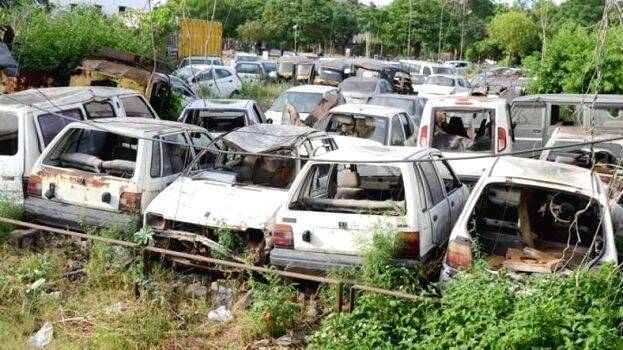

The phrase “police-seized vehicle” doesn’t usually appear in proverbs! But when you see vehicles seized by the police and excise departments lying abandoned in yards or by the roadside across the state, rusting away, one might even think of coining a new proverb using this phrase. A law allowing such seized vehicles to be used by the respective departments after a fixed period should have been enacted long ago. Otherwise, these vehicles could be auctioned to the public. Either way, the government has now taken a good step in this direction. It has granted permission to publicly auction 8,362 vehicles currently held as confiscated property under the excise department. Even if this decision came late, a good move deserves appreciation.
The number of Abkari (liquor) cases and drug trafficking cases in the state continues to rise daily, with no sign of decline. In such cases, it’s often the vehicles used for smuggling that are seized first, even before the accused are caught. Most cases involve traffickers abandoning their vehicles when pursued by police or excise officials. The nature of these seized vehicles varies depending on the stature of the smugglers — sometimes including luxury cars worth crores. But no matter how valuable, confiscated property remains confiscated. Police stations and excise offices lack dedicated storage spaces for these vehicles, so they end up lying in vacant plots or by roadsides, exposed to sun and rain, deteriorating day by day.
Under the central government, there is an agency called MST Corporation, which auctions properties seized by banks, government agencies, and others, using an e-commerce platform. However, the process is notoriously slow. This prompted the excise commissioner to request the state government to allow auctions to be conducted directly, a request which has now been approved. Another factor was the high registration fee required to participate in MSTC auctions — a non-refundable amount that discouraged scrap dealers and others from taking part. With public auctions now permitted, it is expected that things will proceed faster.
According to the new order, the first phase of auctions — involving 1,400 vehicles — will take place in various districts between August 11 and 21. The conditions for the auctions have already been published. Let us hope that follow-up procedures will not get delayed. The state police chief should also submit a similar request to the government, just as the excise commissioner did, since the number of seized vehicles in police custody is far higher. Due to space constraints, most of these vehicles have been lying for years along busy roads and public areas, causing inconvenience to the public. Valuable parts have likely already been stripped by opportunists, leaving behind only rusting metal frames that can be sold off as scrap. Such auctions will help remove these eyesores, and in the process, usable vehicles can be sold cheaply to those who need them. However you look at it, this is indeed a welcome move.